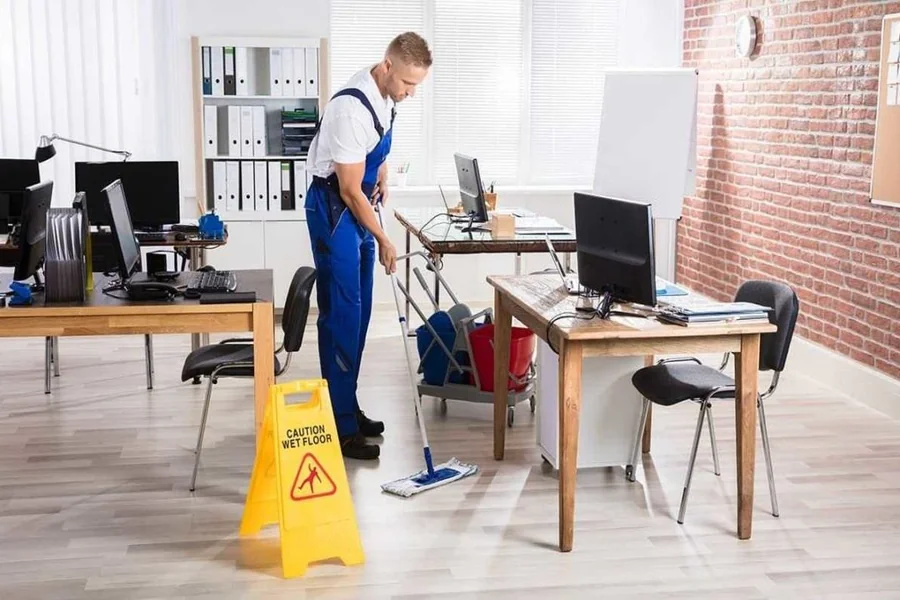A clean and organized office is more than just visually appealing; it plays a crucial role in the health, productivity, and overall morale of employees. Studies indicate that office environments can harbor thousands of germs on surfaces such as keyboards, desks, and communal areas. Poor office hygiene can lead to increased sick days, lower productivity, and even affect the company’s image with clients and visitors. Prioritizing cleanliness in the workplace is essential for creating a safe, efficient, and welcoming environment.
Understanding the Risks of Poor Office Hygiene
Many employees underestimate the risks associated with a dirty office. Shared spaces, including kitchen areas, meeting rooms, and restrooms, are hotspots for bacteria and viruses. High-touch surfaces like door handles, photocopiers, and elevator buttons are prime breeding grounds for germs. Research has shown that a single employee with a cold or flu can spread illness to several colleagues within days if proper hygiene practices are not followed.
In addition to health risks, cluttered and untidy offices can negatively impact mental well-being. Studies in environmental psychology suggest that messy workspaces increase stress levels and reduce focus. Employees working in chaotic environments may struggle to prioritize tasks and feel overwhelmed, resulting in decreased efficiency.
Daily Cleaning Practices for a Healthier Office
Maintaining office hygiene begins with consistent daily cleaning routines. Simple practices, such as wiping down keyboards, phones, and desktops with disinfectant wipes, can significantly reduce the spread of germs. Employees should be encouraged to clean their own workspaces regularly, creating a culture of responsibility and awareness.
Communal areas like break rooms and kitchens require special attention. Regularly sanitizing countertops, microwaves, coffee machines, and refrigerator handles prevents bacteria buildup. Providing hand sanitizers at convenient locations encourages staff to maintain hand hygiene before and after meals.
Trash management is another critical element of daily office cleaning. Bins should be emptied frequently to prevent unpleasant odors and reduce the risk of attracting pests. Encouraging employees to dispose of waste correctly and recycling where possible promotes both cleanliness and environmental responsibility.
The Role of Professional Cleaning Services
While daily upkeep by employees is important, professional cleaning services play a key role in maintaining deep hygiene standards. Commercial cleaning companies offer comprehensive solutions that go beyond surface cleaning, such as carpet shampooing, floor waxing, and high-level dusting. Regular commercial floor waxing not only enhances the appearance of office floors but also protects them from wear and extends their lifespan. Offices with high foot traffic, such as those in urban areas, benefit from routine professional cleaning to ensure that even the most overlooked areas remain sanitary.
Professional cleaners also have access to industrial-grade disinfectants and equipment, making it easier to eliminate stubborn germs that typical office supplies cannot address. Investing in such services can reduce the frequency of employee illnesses, keeping teams productive and reducing costs related to sick leave.
Encouraging Personal Hygiene in the Workplace
Office hygiene is not solely the responsibility of cleaning staff; employees must actively participate. Encouraging personal hygiene practices, such as frequent handwashing, using tissues when sneezing or coughing, and properly storing personal items, creates a healthier work environment.
Many offices now implement hygiene policies or guidelines, particularly during flu seasons or outbreaks of contagious illnesses. Simple measures, like making hand sanitizers available and displaying reminders for proper handwashing, are effective ways to promote personal responsibility among employees.
Organizing for Cleanliness
An organized office is inherently easier to keep clean. Providing sufficient storage solutions, such as shelves, cabinets, and drawers, helps reduce clutter on desks and common areas. Designated spaces for office supplies, mail, and personal belongings minimize mess and make routine cleaning more manageable.
Digital organization also contributes to hygiene indirectly. Reducing paper clutter through digital filing systems decreases dust accumulation and simplifies maintenance tasks. Clear labeling of storage areas ensures that employees know where items belong, reducing misplaced objects and promoting order.
Addressing Restroom and Kitchen Hygiene
Restrooms and kitchen areas are critical points of concern in any office. Regularly disinfecting sinks, countertops, and toilets is essential to prevent the spread of germs. Stocking restrooms with soap, hand towels, and sanitizing sprays supports personal hygiene practices.
In kitchens, maintaining proper food storage and labeling helps prevent contamination. Employees should be encouraged to clean up after themselves and report spills or broken equipment immediately. Establishing rotating cleaning schedules can ensure that these areas remain sanitary without overburdening any single staff member.
Leveraging Technology for Cleaner Offices
Technology can also play a role in maintaining office hygiene. Touchless faucets, automatic soap dispensers, and motion-sensor lighting reduce the number of surfaces employees must touch, limiting the transmission of germs. Air purifiers and HVAC filters can improve indoor air quality, reducing allergens and airborne pathogens.
Moreover, apps and digital checklists can streamline cleaning routines by reminding staff and management when specific areas need attention. Implementing these tools demonstrates a proactive approach to hygiene, showing employees that their health and safety are a priority.
Conclusion
Office hygiene is a vital component of a successful and productive workplace. By implementing daily cleaning routines, involving professional cleaning services, encouraging personal hygiene, and maintaining organization, businesses can create a healthier and more efficient environment. Restrooms, kitchens, and high-traffic areas demand particular attention, while technology can provide innovative solutions to enhance cleanliness.
Investing in office hygiene is more than just maintaining appearances; it is an investment in employee well-being, morale, and overall productivity. Clean offices foster a sense of professionalism, instill pride among employees, and create a welcoming space for clients and visitors alike. Ultimately, prioritizing hygiene ensures a safer, happier, and more productive workplace for everyone.







